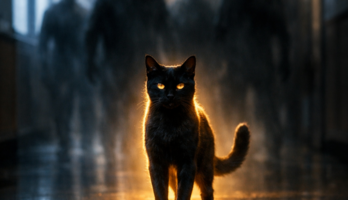01-04-2020-Орловская И.В., Самсонова Л.С. Учебник английского языка для технических университетов и вузов (6-е издание, 2006)(1) (1171846), страница 16
Текст из файла (страница 16)
What is the advantage of high-definition television? (the television of muchhigher resolution) 7. What technology makes HDTV commerciallypracticable now? (plasma display panel technology)Exercise 2. Make a sentence out of the two parts.1. The first black-and-whitenine-by-twelve inch TV sets2.
In a surprisingly short time1. has been replaced by colourtelevision.2. the development of TV becamedigital television in which the usualsignal is replaced by a digital code.733. At present4. Satellite and cable TV makesit possible5. Recently black-and-white TV6. The next major advance in7. The invention of high-defmition television with a picture resembling a wide screen film3.
were of historical importancein 1939.4. television has had great influence on people's life and way ofthinking.5. is the most important stage inthe development of TV since theappearance of colour television.6. to watch TV programs in different parts of the country andthroughout the world.7. there are different kinds of television systems: satellite, cable, colour, pocket-size, digital, high-definition television.Exercise 3. Read and learn.At the TelephoneMr. Smith: Can I use your telephone for a long distance call? Icouldn't find a pay phone in the building.Mr.
Wilson: Sure.Mr. S.:My wife is going to meet me in New York tomorrow. Iwant to tell her what time the train gets in.Mr. W.:Here you are. New York you can dial the number direct.Dial 2 and then the number.Mr. S.:There's no answer. I'll call later.Mr. W.:You can use the telephone any time you want.Mr.
S.:Direct distance dialing is wonderful, isn't it?Operator: Trunk-service (междугородная), number, please?Mr. Jones: London Victoria 2884. I say, operator, will you hurry itup for me as I have a train to catch in a few minutes?O.:Unless your number is engaged, I can put you throughalmost at once. I am sorry, sir, your number is engaged.(After a few seconds.) I have got your number. Hold theline, please.Mr. J.:Oh, it's you, Mary?Mrs.
Jones: Is it you, George, dear? How are you? So pleased to hearyour voice again! When are you going to come back?74Mr. J.:0.:Mr. J.:Mrs. J.Mr. J.:Mrs. J.Mr. J.:O.:Mr. J.:I can't hear you, dear. Operator, will you try again.I think that's better now.Are you there? Is that you, Mary, dear? I say, can youhear me?Yes, dear, I can.I shall be arriving at Waterioo Station at 5.40 this afternoon. Will you come and meet me?Certainly, darling.There is something else I want to tell you.
Get hold ofSmith at the office, will you? Ask him to ring me up tomorrow in the morning.Your time is up. If you want to speak on, drop anothersixpence, please.All right, dear, so long.Exercise 4. Speak about:1. The history of television development.2. Future development of television.Use exercise 1 and 2 and the following words and word combinations for yourtopic: to be interested in; research; it is announced (reported) that; to solve problems; it became clear; compared to (with); to call; have an advantage; tofindapplication in.Exercise 5. Comment on the following statements:1.
Opponents usually say that the young people are too passiveand too lazy (ленивы) because they watch TV so much now.2. We don't need the telephone, telegraph and television.Exercise 6. Read and smile.A Letter to a SweetheartA young man was writing a letter to his sweetheart (любимая)who lived just a few miles away in a nearby town. He began to tellher how much he loved her and how wonderful he thought she was.But the more he wrote, the more poetical he became. Finally, hesaid that in order to be with her he would suffer the greatest hardships (лишения), he would face the greatest dangers (опасность)that anyone could imagine. In fact, to spend only one minute withher, he would climb (подниматься) the highest mountain, hewould swim the widest river, he would fight the fiercest (свирепый) animals.
He signed his name, and then suddenly remembered75that he had forgotten to mention something rather important. So,in a postscript below his name, he added: «By the way, I'll be overto see you on Wednesday night — if it doesn't rain».A Frenchman in EnglandA Frenchman was once travelling in England. He could speakEnglish quite well but not perfectly. His vocabulary was not large.Once, for example, he was eating in a small country inn(гостиница) and he wanted to order some eggs.
But he couldn't remember the word for eggs.Suddenly, through the window, he saw a rooster (петух) walking in the yard. He immediately asked the waiter what the bird wascalled in English. The waiter told him that it was called a rooster.The Frenchman then asked what the rooster's wife was called. Thewaiter told him that she was called a hen. The Frenchman thenasked what the hen's children were called. The waiter told him thatthey were called chickens. The Frenchman then asked what thechickens were called before they were born. The waiter told himthat they were called eggs. «Fine!», said the Frenchman, «Pleasebring me two plus a cup of coffee and some toast.»Text 4BПрочитайте текст и найдите информацию о том, в каких странах ученыеработали над созданием телеграфной связи, какие трудности встретилисьпри этом. Перескажите.TelegraphBenjamin Franklin, an American who is famous for his interesting and useful inventions, published his ideas about electricity in1752.
Scientists in many countries became interested in this wonderful form of energy. They wanted to find the answer to a very important question: could the electricity be used to develop a fast,efficient system of long-distance communication? Experimentsproved that electricity could travel instantly over a very long pieceof wire. But a note that was written on a piece of paper couldn't beput into a wire.
How could electricity be used to send a message? ADanish scientist discovered that electricity could move a needlefrom left to right and that the needle could be pointed at letters ona piece of paper. Then a German government worker made up acode system that could be used with an electric needle.
In 1837 twoEnglish scientists sent a message by electric telegraph for a distanceof more than 1.6 kilometers.76Samuel Morse, an American portrait painter, was experimenting with an electric telegraph too. At first he connected a pencil toan electric wire. When the electricity came through the wire thepencil made wavy lines. Then Morse invented a code that used dotsand dashes for the letters of the alphabet. Finally, he discoveredthat telegraph messages did not have to be written, they could besent in sound.On May 24, 1844, the first long-distance message was sent bytelegraph for 64 kilometers.Telegraph companies were formed in many cities.
By 1861 telegraph wires stretched from the Atlantic to the Pacific. In Europetoo, Samuel Morse's system became popular.But telegraph wires couldn't be hung over an ocean. Messagesto and from Europe had to be sent by ship — a journey of two orthree weeks. A new method was needed.The Atlantic Telegraph Company which was organized in 1856wanted to try to lay a cable on the floor of the Atlantic Ocean. The4,000-kilometer cable broke three times. Each time a new cablehad to be made.
Finally, on July 27, 1866, the first transatlanticmessage was sent from Newfoundland to Ireland.Later cables were laid to Central and South America. After1900 transpacific cables were laid to Asia and Australia. At lastnews and business information could be sent instantly to almostevery country in the world.Text 4CПрочитайте текст и ответьте на следующие вопросы:1. Какие биографические факты из жизни изобретателя телефона приведены в тексте?2. Какие другие факты, кроме приведенных, вы знаете об изобретателетелефона?3. Что нового вы узнали из текста? Соотнесите факты, относящиеся кистории развития телефонной связи, со следующими датами: 1877 г.
и 1915 г.TelephoneAlexander Graham Bell never planned to be an inventor, hewanted to be a musician or a teacher of deaf people (глухих). Thesubjects that he studied at school included music, art, literature,Latin and Greek. They did not include German which all scientistsused in their books. Alexander's mother was a painter and a musician. His father was a well-known teacher of deaf people.When Alexander was only sixteen, he became a teacher in boy'sschool in Scotland. He liked teaching there, but he still wanted tobecome a teacher of deaf people as his father.77Не read all the books about sound that he could find and startedto work on some of his own experiments.At twenty five Alexander became interested in finding a way tosend human voice through an electric wire.
The parents of his pupils contributed money for the equipment. He found an assistant,Tom Watson, who worked in an electrical shop. For two years Tomand Alexander were working together to build a machine that people could use to talk to one another over long distances. After twoyears, the two young men were becoming discouraged (опустилисьруки). Then, one day, when they were working on a new transmitter Alexander spilled some acid (пролить кислоту) on himself.Tom Watson, who was alone in another room, heard a voice. Thevoice was coming through a wire to a receiver on the table! Thevoice was Alexander Bell's! It was saying: «Come here, Mr.














